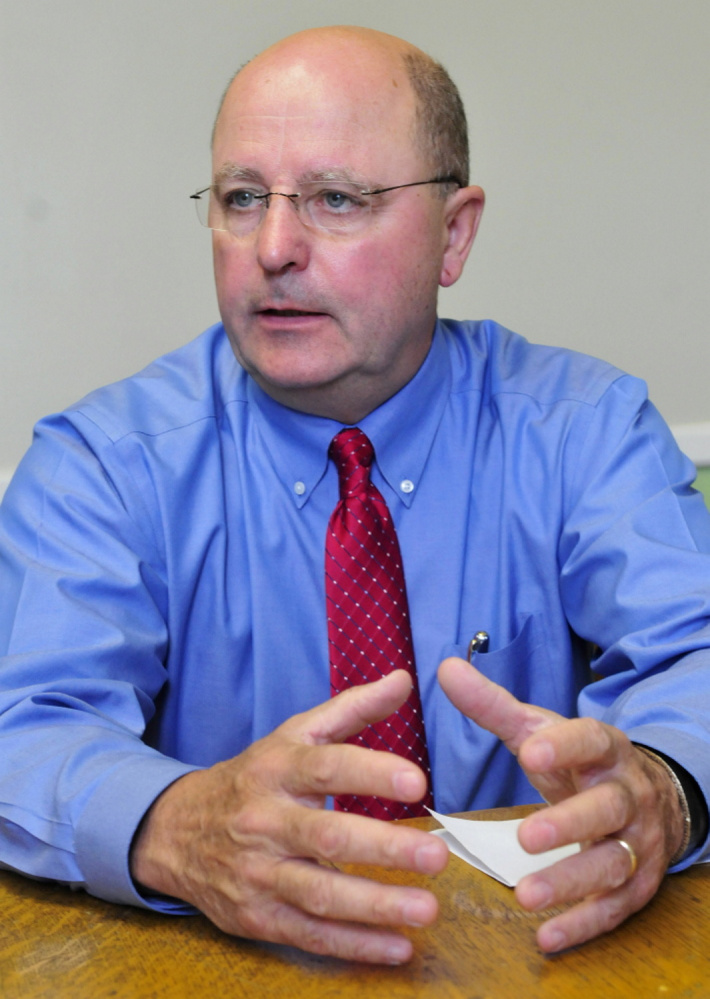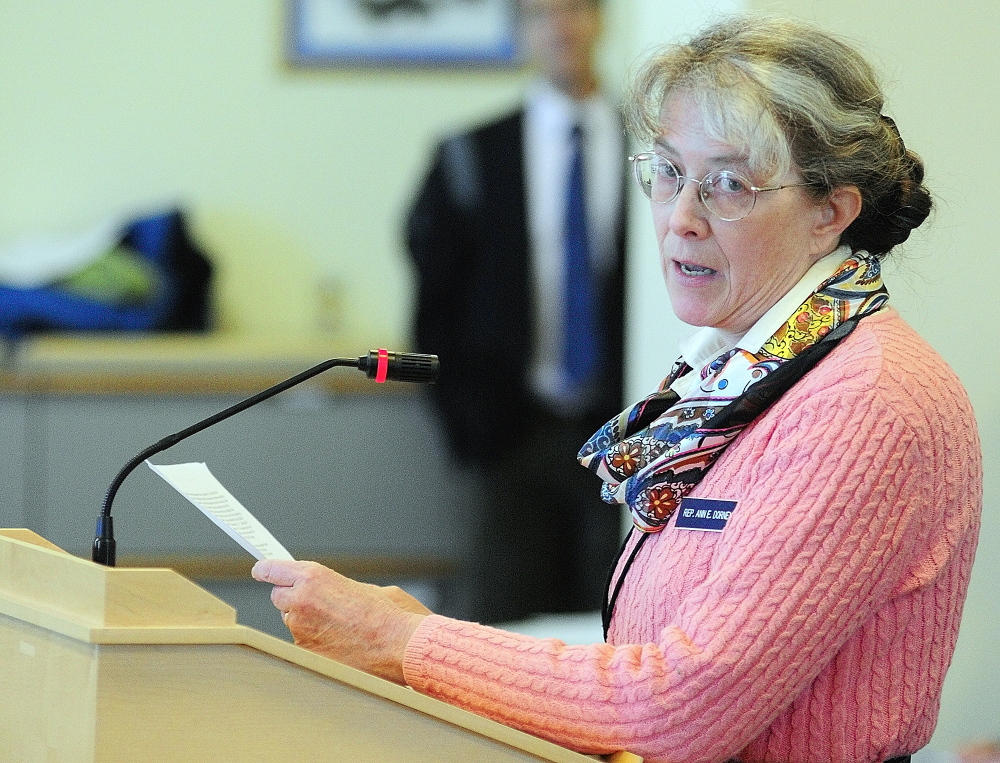A state police trooper and a Skowhegan police detective working as a county deputy are being credited this week with saving a woman’s life in Somerset County after administering a drug used to reverse narcotic overdoses.
Skowhegan Detective Sgt. Joshua King, who administered the antidote naloxone, said he knows firsthand the horrors of drug addiction — a cousin of his died last year from an overdose.
The incident Saturday in Hartland was the first successful application of naloxone, commonly known by the brand name Narcan, in the county since the Somerset County Sheriff’s Department and the Skowhegan Police Department started carrying the antidote in December.
“This is our first save with Narcan,” Somerset County Sheriff Dale Lancaster said Wednesday. “It was the first time a deputy actually administered Narcan at a scene. They were instrumental in saving a life.”
But use of the drug in Maine has been controversial. The Maine Legislature voted in April to override a veto by Gov. Paul LePage to allow access to the life-saving overdose antidote naloxone without a prescription.
LePage has since continued to criticize use of naloxone and suggest it’s being abused, relaying an anecdote about a school resource officer telling him a high school student from the Portland area who overdosed and was revived three times in a week. A Portland official has maintained that nothing like that has happened within the city, and LePage has since slightly revised a detail but says the story is accurate.
Skowhegan physician Ann Dorney, a former Democratic legislator from Norridgewock, sponsored legislation in 2014 that allowed police and emergency responders to carry naloxone.
Contacted Wednesday, Dorney praised the state’s law enforcement and medical communities for making the life-saving antidote available without a prescription. She said medical doctors have been using the drug for years in emergency rooms and hospitals.
“I think it’s a wonderful thing,” she said of the recent Narcan rescue in Hartland. “The nice thing about it was the collaboration between the hospitals who made the Narcan kits available and the law enforcement that is willing to do the training. I was there when they did the training, and it was really fun to see.
“I’m glad it all worked out and hopefully this woman will get treatment for her drug addiction.”
Lancaster said Cpl. Chris Carr of Maine State Police was the first to respond to a report of an intoxicated person just before 9 p.m. Saturday at the Family Dollar store on Elm Street in Hartland.
Carr, knowing that Somerset County deputies carry Narcan, alerted the dispatch center asking that the deputy on duty in the area “expedite his response,” Lancaster said.
King responded and found a 42-year-old woman unconscious, breathing sporadically, and her skin was cool. He was carrying the antidote drug in his county cruiser.
“Deputy King immediately administered Narcan, and before the Sebasticook Valley Hospital ambulance arrived, the female had been revived,” Lancaster said. “I’m hoping this woman takes advantage at her second opportunity at life.”
The woman, whose name is not being made public by police, was taken by ambulance to Sebasticook Valley Hospital in Pittsfield, where she is expected to make a full recovery, the sheriff said. Lancaster said the drug case against the woman is still under investigation — authorities don’t know what drug caused the overdose — and no charges have been brought.
King said his family, like so many others in Maine, has suffered from the opioid epidemic, and he was glad he was there to help. He said he carries Narcan as a county deputy and as a police officer in Skowhegan.
“When I arrived it was obvious the woman was overdosing,” King said. “She was blue and cold to the touch.”
He said county deputies and police officers are trained to look for signs that a person is overdosing.
“When I later learned she had survived, I was excited and happy to be a part of the response that saved her life,” he said. “I lost a cousin to a heroin overdose last year and know that good people can fall victim to this addiction. Anytime we can give someone a second chance to get help and move on, it’s a good day.”
The Kennebec County Sheriff’s Office in Augusta and Bangor Police Department are among the few Maine police agencies that have used naloxone within the last year, according to the North Carolina Harm Reduction Coalition, a national group that advocates for naloxone access.
Lancaster said use of Narcan is a safety net in a public health epidemic and that addiction is a treatable condition, not a moral question.
“In law enforcement, part of our job is to save lives,” Lancaster said. “If we have a simple tool, which is the Narcan kit, to save a life — I’m not in a position to say who lives and who dies. There’s a higher being than me that makes that decision.”
Lancaster said the Narcan rescue was the first since the Somerset County Sheriff’s Office, along with its Madison Division, made the decision to provide training and carry Narcan in all of the patrol vehicles.
Dorney, who worked with paramedics Ian Shalit and Everett Flannery from Redington-Fairview General Hospital, instructed the Somerset County Sheriff’s Office and the Skowhegan Police Department on the proper use in administering naloxone, Lancaster said. The sheriff’s office also partnered with the pharmacy at the hospital to supply naloxone to the deputies at no cost to the county.
Doug Harlow — 612-2367
Twitter:@Doug_Harlow
Send questions/comments to the editors.




